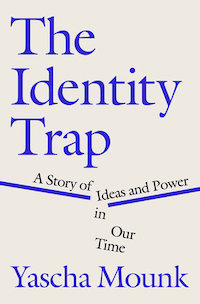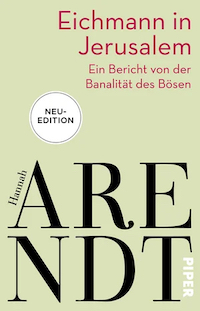Public ideas
Forget about the “left vs right” conflict: it’s “identity vs universalism”
On December 1, 1955 Rosa Parks, an African-American lady, was arrested and fined for having refused to give up her seat on a crowded bus in Montgomery Alabama, to a “white” passenger.
That became a defining event in the US struggle to reconcile the fine words in its Declaration of Independence with the ugly reality of slavery and the post-Civil War compromise. Events such as the cold-blooded murder of George Floyd by Minnesota police confirm that that struggle is still a work in progress.
Those same fine words are expanded in the Universal Declaration of Human Rights, a charter that sets down the ground rules for a liberal democratic order. (Our delegation to the UN, headed by Herbert Evatt had a significant part in drafting the Declaration in 1948.)
As confirmed by US experience and the practices of most UN member countries, words on a document do not, in themselves, determine a world order, but they do provide aspirational standards about elimination of gender, race and religious discrimination, and progress towards achievement of rights such as freedom of association and political participation, and equality before the law.
Worldwide, liberals have become concerned about what seems to be an accelerating trend of democratic backsliding, demonstrated just in the last few weeks by outcomes of the Dutch and Argentinian elections. The prospect of a Trump victory in next year’s presidential election has prompted the Economist, in its first lead article, to warn that Donald Trump poses the biggest danger to the world in 2024 (paywalled).
These threats to a liberal order are generally seen as emanating from the authoritarian “right”, but Yascha Mounk, in a discussion with Phillip Adams on Late Night Live, warns that those who describe themselves as “progressive” or “left” are also rejecting liberal values: Why identity politics is a zero sum game.
Identity has become the basis of what he calls “progressive separatism”. He starts the discussion with a confronting description of the re-emergence of racially segregated classrooms in Atlanta, Georgia, where children are encouraged to think of themselves in “racial” terms – even though the whole idea of “race” was debunked more than a hundred years ago. Similarly we now hear liberals using the term “people of colour”, as if there is some meaningful quality that attaches to one’s skin pigment.
Mounk warns that once a group is defined by identity, no matter how weak that identity really is, they will come to unite under that identity, cooperating to look after their own group’s interests and to work against the interests of others – hence his reference to “zero sum” outcomes.
In the 20-minute session he covers a great deal of ground, generally about the way identity awareness is undermining values of liberal universalism. In the US, in particular, an obsession with “race”, has distracted reformers from considering the legacy of slavery and the realities of deep-seated intergenerational class discrimination. It’s easy to blame “race”, because we have to accept our skin colour as a given condition; it’s much harder and unsettling to deal with the mutable conditions that lead to economic inequality.
In emphasising identity the “left” tacitly gives the “right” leeway to reciprocate: we might recall, for example how Dutton was largely unchallenged when he misleadingly raised the idea of “race” in the Voice campaign. Although politicians on the “right” and journalists in the Murdoch media fulminate against the “left’s” concern for identity, they are no less inclined to engage in identity politics, when they use classifications such as “battlers”, “mum-and-dad investors”, and “the climate change cult”.

The interview was too short to move on to gender as an identity issue. In what are often called the “first” and “second” waves of feminism, the movement was grounded in universalism – rights and impediments to women in exercising those rights. But gender itself has become a matter of identity, well beyond any characteristics defined by biology.
When women cluster around women’s groups, such as professional organizations, or when they argue for gender-segregated education institutions, they are endorsing gender segregation in institutions ranging from the Taliban through to Newington College and the Melbourne Club, institutions that intentionally or otherwise reinforce ideas of male dominance. It’s as anomalous as a movement of South Africans of local descent calling for the re-introduction of apartheid.
It is hardly surprising that misogynistic strongmen, most recently Argentine’s Javier Milei, have been able to succeed electorally on platforms of reversing women’s hard won-progress, not only on reproductive justice, but also on economic rights.
Mounk is author of The identity trap: a story of ideas and power in our time.
How the media legitimizes the far right
In the movie Der Untergang (Downfall) Hitler generally comes across as well-mannered, kind and considerate to his secretary Traudl Junge and to his companion Eva Braun, and gentle with his loyal dog Blondie. His rants and fury are reserved for Wehrmacht generals. German historians generally agree that the movie’s portrayal of Hitler is accurate. Even the worst monsters have a presentable side.
Writing in The Conversation, Andrew Mondon of the University of Bath, UK, analyses two ways the media, usually inadvertently, promote the far right. One is through stories of their personal, non-political lives, and the other is through presenting their views as mainstream: Look to the mainstream to explain the rise of the far right.
As a local example of the former, the ABC’s Annabel Crabb has presented the personal sides of eight federal politicians in the popular Kitchen Cabinet series, where they all come across as rather warm and cuddly.
Mondon warns that even those who ridicule politicians humanise them because the satirist often makes the strongman look weak and vulnerable. Journalists who were diligent in exposing the Coalition government’s incompetence and corruption softened their stories with the cutesy nickname “Scomo” for the Prime Minister. Monson even criticizes use of the word “populist” because of the way it can be interpreted as a genuine concern for people rather than as a means of malign manipulation of public opinion.
The other and more effective way the media support the far right, is by mainstreaming their platforms. We may be going about our lives, getting on with our neighbours, managing to make ends meet, and be generally content with our lives until we see the media narratives, about a cost of living crisis, immigrants causing a housing shortage, the government losing touch with real Australians, and so on. It’s not as if there aren’t problems in these domains but the constant repetition of these themes, and the implication that they affect us all because the government has failed, is just the message the far right wishes to broadcast, because the far right is nurtured by the politics of resentment.
This amplification of the far-right’s agenda is standard practice for partisan media, but otherwise it’s almost standard journalism. Just on Tuesday Karen Middleton of the Saturday Paper, who is ruthlessly thorough in exposing the Coalition’s corruption and incompetence, said “the opposition can smell a government on the backfoot” in a short radio interview about political events, and the ABC picked it up as a headline for her segment on Radio National. There is no evidence that the government is “on the backfoot”, but that’s what Dutton and his colleagues want us to believe, and journalists are unintentionally helping disseminate that belief.
How Eichmann fooled us all
It is 60 years since Hannah Arendt wrote Eichmann in Jerusalem: a report on the banality of evil, her account of the trial of Adolf Eichmann, one of the main organizers of the Holocaust.
At the trial Eichmann, with help from his lawyers, presented himself as the classic German Beamte, the rule-abiding, unimaginative, amoral public servant. It was a role straight out of central casting, and that was Eichmann’s cleverness, because he was playing a role to send a message to Arendt and the millions following his trial.
Writing in The Conversation Matthew Sharpe of the Australian Catholic University considers evidence that wasn’t made available to the trial. Because his lawyer managed to keep this evidence suppressed, Eichmann was able to come across as “the ungainly clerk next door”. In his article Is it time to reconsider the idea of “the banality of evil”? Sharp writes:

By presenting himself as a banal non-entity, Eichmann must … have savoured how this would deprive survivors even of a worthy object for their anger and outrage. How could anyone rightfully blame such a mediocre, inoffensive figure, without showing themselves – not the Nazis – to be vengeful, aggressive and unjust?
Eichmann presented himself as one without moral agency. By extension no one was responsible for the Holocaust: the hard truth is that it happened – that’s the way of the world.
Sharpe goes on to liken Eichmann’s defence to the current idea, voiced by radio shock jocks and others on the right, that “goody-goodies”, “social justice warriors”, “liberals” and “humanitarians” should accept that what they call “evil” is just the way of the world.
Arendt was troubled by her own assessment of Eichmann. It’s unfortunate that she died in 1975, without becoming aware of the evidence that was so successfully suppressed from the trial.
The allure of easy solutions
It isn’t one of my normal sources, but I commend an essay by Joe Hildebrand, of News Corp: Stunning far-right victory as ‘smug elites’ crowed too soon.
In commenting on Geert Wilders’ performance in the Netherlands, and on Trump’s continuing popularity, he makes some telling observations on liberals and the left for their disregard for the immediate problems faced by those doing it tough.
People’s mood has shifted from “stoic” to “stressed”, he points out, and they “will turn to anyone who offers them salvation” be it real or imagined.
So his solution: “it’s time for the government to cut the petrol tax”.
Perhaps he hasn’t thought through the consequences of cutting fuel excise, because in its effect on the money supply it would surely push the RBA towards pushing up interest rates once again. But we should stop and think why such an idea has appeal.
Maybe, when the Reserve Bank mounts the pulpit it should commend the government for its attention to fiscal policy (which some would judge to be too harsh). It should also explain why simple solutions, such as cutting gasoline tax, or expanding subsidies to renters, would be ineffective.
More generally Hildebrand’s observations are about poor leadership. If we are not to head down some Argentinian-style path to economic ruin, we have to build more houses, mitigate our contribution to greenhouse gases, invest in ways to adapt to the consequences of global heating, and invest in education, training and re-training so that we can prosper in a toughly competitive world. All of these require some suppression of present consumption for longer-term benefits. That’s a hard message.
Good leadership is about those with voice, including but not only those in high office, being straightforward with this reality. That involves acknowledging the sacrifices required now, along with rapid implementation of policies that would place that burden on those most able to bear it, particularly well-heeled baby-boomers enjoying the prosperity built on the sacrifices of earlier generations of Australians.